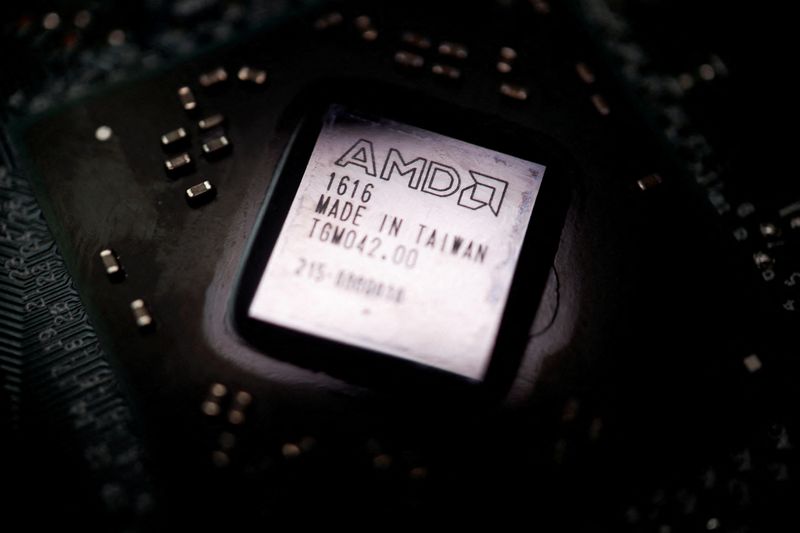AMD shares slump as forecast disappoints AI-focused investors
2024.10.30 10:01
By Aditya Soni
(Reuters) -Advanced Micro Devices shares fell nearly 10% on Wednesday after the chip company’s revenue forecast failed to impress investors looking for a bigger windfall from the AI boom.
AMD (NASDAQ:) could lose around $25 billion in market value, if the losses hold. The company has been one of the biggest winners of the chip demand boom sparked by the rise of generative AI, with its shares up nearly 156% since end-2022.
Its soft quarterly revenue forecast and a $5 billion AI chip sales target for 2025, however, showed that demand for the processors was rising faster than their production, with CEO Lisa Su saying chip supplies will be tight going into next year.
“It is probably unpalatable for an ‘AI name’ to even guide inline, let alone below,” Bernstein analyst Stacy Rasgon said.
“At this point AI performance, while not bad in the objective sense, appears unlikely to drive upside to current expectations, and talk of 2025 ‘lumpiness’ in the business will probably increase risk (or at least raise some eyebrows).”
Other chip firms such as Arm and Qualcomm (NASDAQ:) also fell nearly 4% each. But AI chip leader Nvidia (NASDAQ:) was down about just 2% in a sign that investors did not expect a similar supply shortage impact on the company.
Both Nvidia and AMD rely on chip-making giant TSMC to manufacture their advanced AI chips, but analysts have so far shown little concern about Nvidia’s AI chip supply.
“AI still dominates this (AMD) story, and while the company did raise (sales expectations) every quarter this year, the concern from here is that AMD won’t be able to provide upside to Street estimates that are already $8 billion-$9 billion for calendar 2025,” Jefferies analysts said.

At least 10 analysts lowered their target price on the AMD stock, while eight raised their views, moving the median to $187.50, according to LSEG data. That represents an upside of nearly 13% to the company’s last closing price.
AMD trades at nearly 32 times its 12-month forward earnings estimates, compared with 36 times for Nvidia.








